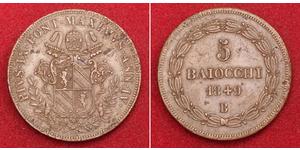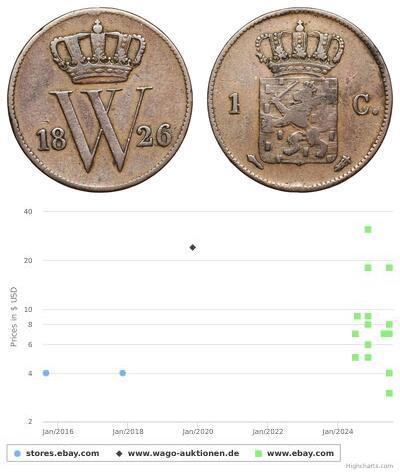Sri Lanka/Ceylon Bronze Queen Lilavati
1197-1211, Sri Lanka/Ceylon, Queen Lilavati. Beautiful Bronze Kahavanu Coin.
Reference: Mitchiner 837-839.
Denomination: Bronze Kahavanu
Mint Period: 1197-1200 / 1209-1211
Material: Bronze
Diameter: 20mm
Weight: 4.24gm
Obverse: Seated King beneath legend in right field.
Legend: "Sri Raja Lilavati."
Reverse: Standing king with ancillary symbols.
Queen Lilavati (reigned 1197–1200, 1209–10, and 1211–12) was the second woman in Sri Lankan history to rule as sovereign in her own right. Lilavati rose to prominence as the wife of Parakramabahu I, king of the Kingdom of Polonnaruwa. Being of royal descent herself, she then ruled as sole monarch on three different occasions in the near-anarchy following Parakramabahu’s death, with the backing of various generals. The primary source for her life is the Culavamsa, specifically chapter LXXX.
It is known that Lilavati was the daughter of Sirivallabha and his wife Sugala, and that she had a brother, also called Manabharana. She would have met her future husband when still young as Parakramabahu was her cousin, the son of her uncle Manabharana of Dhakkinadesa. Following his death, Kittisrimegha ascended to the throne of Dhakkinadesa, and Manabharana’s family came to live with Sirivallabha in Ruhuna. It is not known at what point she married Parakramabahu.
Lilavati’s family – in particular her brother Manabharana of Ruhuna (who was married to both of Parakramabahu’s sisters, Mitta and Pabhavati), and the Queen Mother, Sugala – had a very difficult relationship with Parakramabahu. Manabharana fought against Parakramabahu on several occasions, whilst Sugala “had not a mind capable of reflection and was inclined herself by nature to evil”. It is not known what role Lilavati played in the complex scheming between them.
The Kingdom of Polonnaruwa (Sinhala: පොළොන්නරුව රාජධානිය, romanized: Polonnaruwa Rājādhaniya) was the Sinhalese kingdom that expanded across the island of Sri Lanka and several overseas territories, from 1070 until 1232. The kingdom started expanding its overseas authority during the reign of Parakramabahu the Great.
View all coins in the group
(1365 X 674 pixels, file size: ~226K)
Posted by: anonymous 2018-04-25
1200, Ceylon (Sri Lanka), Queen Lilavati. Nice Bronze Kahavanu Coin. VF+ Reference: Mitchiner 837-839. Denomination: Bronze Kahavanu Mint Period: 1197-1200 / 1209-1211 Condition: A nice VF+ with minor deposits in fields and nice green patina! Material: Bronze Diameter: 21mm Weight: 4.14 ...
(1365 X 652 pixels, file size: ~211K)
Posted by: anonymous 2018-04-25
1202, Ceylon (Sri Lanka), Sahasa Malla. Nice Bronze Kahavanu Coin. aXF! Condition: About XF! Mint Period: 1200-1202 Reference: Mitchiner 840-841. Denomination: Bronze Kahavanu Material: Bronze Diameter: 20mm Weight: 4.06gm Obverse: Seated King beneath legend in right field. Legend: ...
(1365 X 651 pixels, file size: ~212K)
Posted by: anonymous 2018-04-25
1208, Ceylon (Sri Lanka), Dharmasoka (The infant King!). Bronze Kahavanu Coin. R! Mint Period: 1208-1209 Reference: Mitchiner 842-844. Denomination: Bronze Kahavanu Condition: Rusty deposits, otherwise VF+ Diameter: 20mm Material: Bronze Weight: 4.23gm Obverse: Seated King beneath le ...
(1365 X 667 pixels, file size: ~230K)
Posted by: anonymous 2018-04-25
1271, Ceylon (Sri Lanka), Parakrama Bahu II. Bronze Kahavanu Coin. aXF! Mint Period: 1236-1271 Reference: Mitchiner 845-847. Denomination: Bronze Kahavanu Condition: Minor deposits in fields, otherwise about XF! Diameter: 20mm Material: Bronze Weight: 4.2gm Obverse: Seated King beneat ...
(1365 X 642 pixels, file size: ~215K)
Posted by: anonymous 2018-04-25
1273, Ceylon (Sri Lanka), Vijayabahu IV. Beautiful Bronze Kahavanu Coin. VF Mint Period: 1271-1273 Reference: Mitchiner 848-849. Denomination: Bronze Kahavanu Condition: Lightly corroded, otherwiwse VF. Material: Bronze Diameter: 20mm Weight: 3.97gm Obverse: Seated King beneath legend ...
(1365 X 661 pixels, file size: ~220K)
Posted by: anonymous 2018-04-25
1302, Ceylon (Sri Lanka), Bhuvanaikabahu I. l Bronze Kahavanu Coin. VF- Mint Period: 1271-1273 Reference: Mitchiner 848-849. Denomination: Bronze Kahavanu Condition: Dark deposits and corroded surfaces, otherwise VF. Diameter: 20mm Material: Bronze Weight: 3.98gm Obverse: Seated King ...
5 Cent Netherlands
group has 11 coins / 8 prices
⇑






















